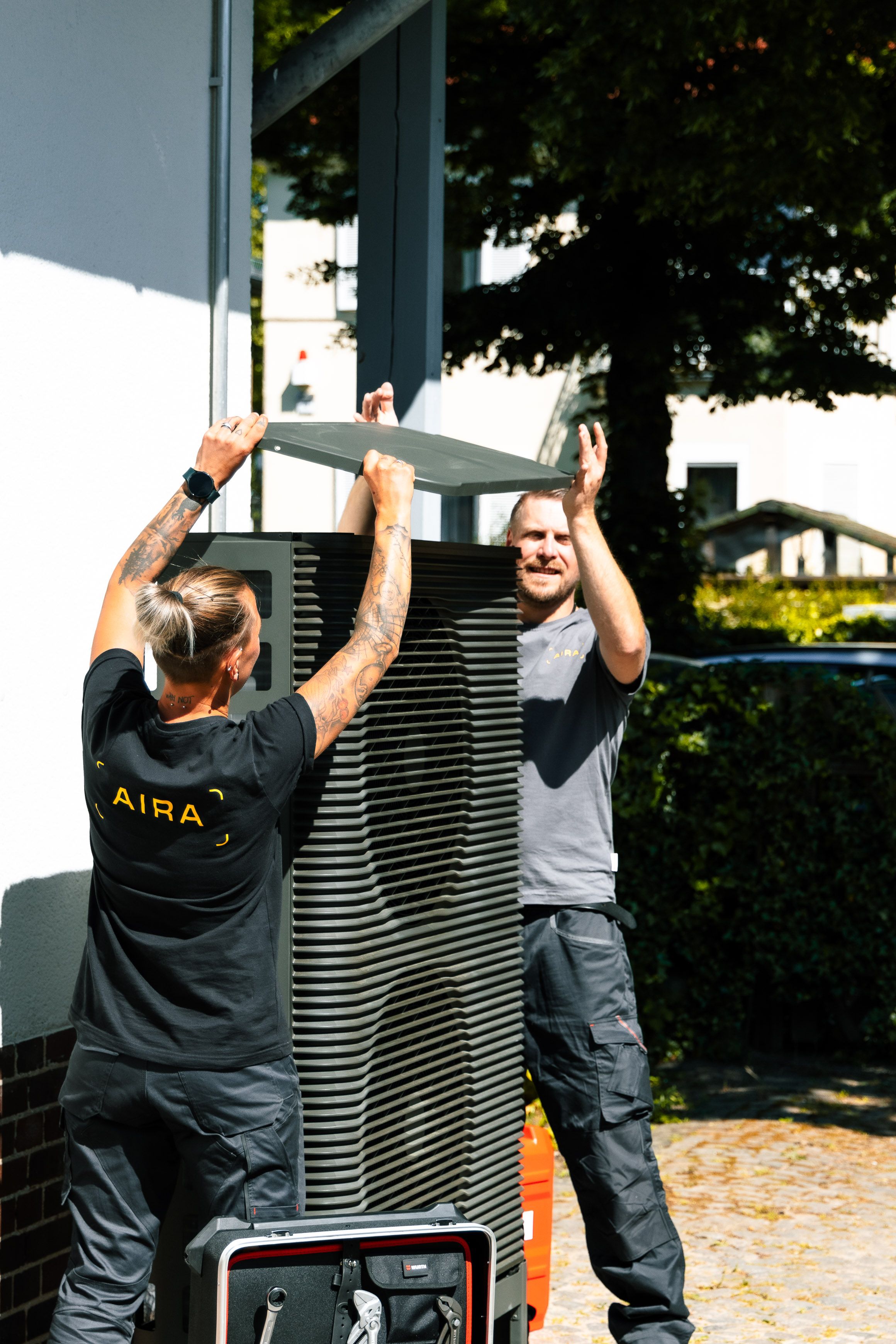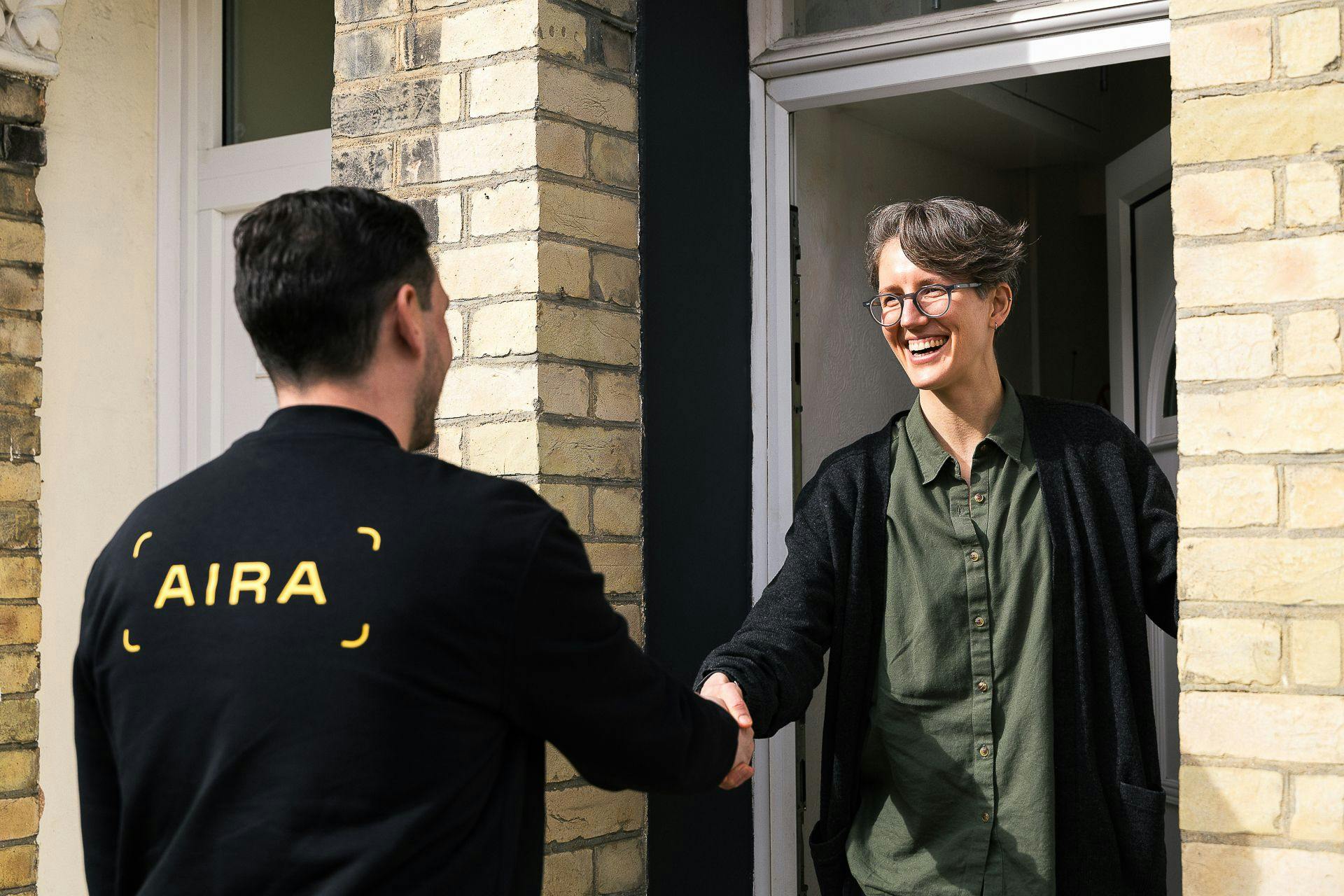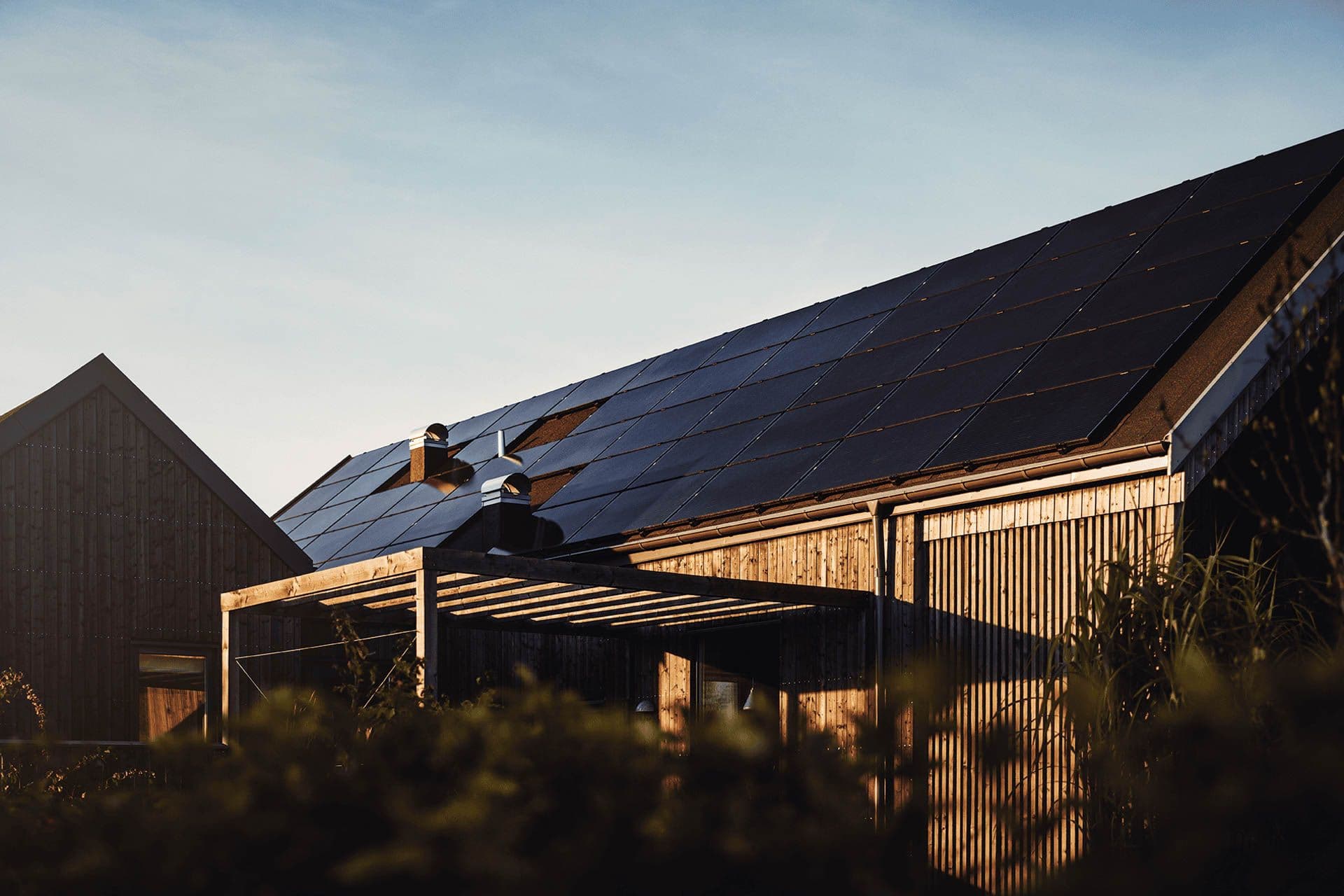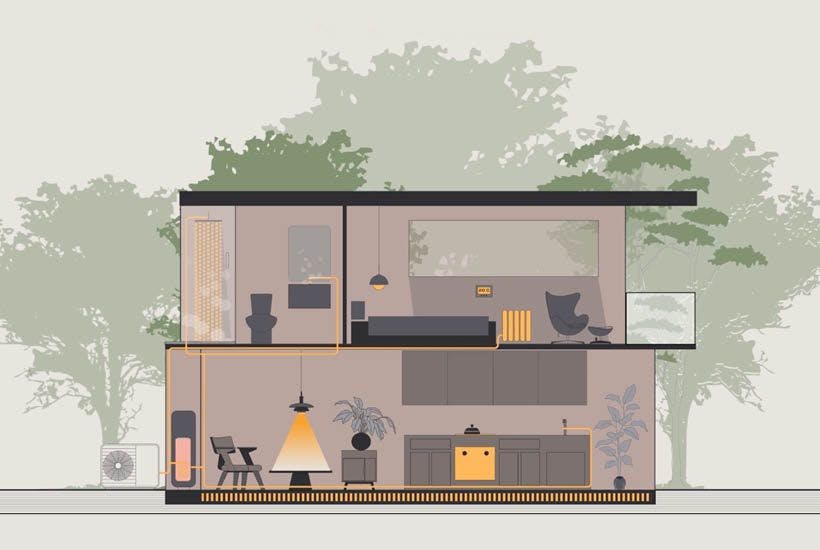Heat pumps have burst into the spotlight in recent years, and for good reason – they’re energy-efficient, money-saving, and are a more eco-friendly alternative to gas central heating.
Whether you’ve never heard of heat pumps or you’re aware and been asking ‘How do heat pumps work?’, read on to learn more about the future of home heating.
What is a heat pump?
Heat pumps aren’t a new invention. They’ve been around for many years as a more environmentally friendly way to heat your home. However, with energy bills soaring across the world, they have recently come into the spotlight as a way to save money on your bills.
There are three main types of heat pumps on the market, air source, ground source, and water heat pumps.
Air source heat pumps
Air source heat pumps (ASHP) take in the free air outside of your house and turn it into energy through a heat exchanger to warm up your home and water. Air source heat pumps work even in the winter (down to temperatures as low as -25°C), because although the air is cooler, there is still plenty of energy available thanks to the large volume of air that passes over the heat exchanger.
Air to water heat pumps are the most common type of heat pump.
Compared to traditional heating systems, air source heat pumps are a more cost-effective and sustainable alternative. If you’d like to find out more about how they work and their benefits, check out our air source heat pump guide.

Ground source heat pumps
Ground source heat pumps (GSHP) gather energy from circulating fluid through pipes that are buried underground. This allows the heat pumps to absorb heat from the earth in winter, heating your home. It can heat your home through radiators and underfloor heating.
Water source heat pumps
Water source heat pumps (WSHP) extract energy by using a body of water, such as a lake, river, or well. They circulate water through a series of pipes to absorb or reject heat, depending on the season and the desired indoor temperature.
Water source heat pumps are stable and highly-efficient, but they require a rich amount of groundwater flow or need to be closely located to a large enough body of water to operate.
How do heat pumps work?
Everything around us contains heat in the form of thermal energy – it flows from one place to another in a neverending dance of balance. Heat pumps utilise this natural flow of warmth, alongside some clever technology, to heat your home.
When the pressure of a gas increases, its temperature also increases. When the pressure decreases, the temperature decreases. This relationship between pressure and temperature is the key to how a heat pump works.
The gas that is used inside a heat pump is called a ‘refrigerant’. Heat pumps use electricity to compress the refrigerant gas, increasing the pressure and, therefore, the temperature. As the heat generated by the compressed refrigerant is transferred through the heat pump, it cools. The cool gas is then pumped back outside to begin absorbing heat from the air or ground once more and begin the process all over again.
The heat delivered by the refrigerant to the heat exchanger can then be used to heat your home through your existing network of radiators.
Benefits of heat pumps
There’s a whole host of heat pump benefits, but here are our top four.
1. Reduce your energy bills
Making the move to a heat pump means you could save up to 25% on your monthly energy bills. Although a heat pump uses a small amount of electricity to run, the savings you can make overall outweigh the cost of running it.
Upgrading to a heat pump can also help lower the impact of unpredictable fluctuations in energy prices and if you don’t have any other gas appliances in your home, you wouldn’t have to pay another gas bill again!
2. Reduce your carbon emissions and play your part in net zero
Heat pumps are four times more efficient than traditional boilers, so switching to a heat pump can help to reduce your home’s carbon emissions.
3. Save time and storage space by stopping fuel deliveries
If you currently use an oil or LPG heating system, you won’t have to deal with any more fuel deliveries and can save storage space, freeing up extra room in your home.
4. Future Proofing Your Home
Heat pumps will become an even more important part of the future of home heating, so installing one now will future-proof your home and give you access to the latest technology.

Heat pump efficiency
Heat pumps are extremely efficient for heating your home, often using very little electricity in comparison to the amount of heat they produce. While modern condensing boilers are only 90% efficient, an air source heat pump, for example, can be up to 400% efficient – which can save you a good amount of money every year on heating bills.
The amount of heat produced for every unit of electricity used is known as the Coefficient of Performance (COP). So, if a heat pump has a COP of 4.0, then it will give out four units of heat for every unit of electricity it consumes – look out for this when deciding on your system.
How much do heat pumps cost?
The typical price range for a complete installation of an air to water heat pump is between £12,500 and £30,000 pre government grant. This is flexible depending on which model you choose, how many rooms you will be heating, and how large the system needs to be. You will need to also consider the running costs of the air source heat pump system, as they use electricity to run. Often the running cost can be reduced by using a heat pump tariff to run your heat pump.
The good news is that this price estimate doesn’t include the government Boiler Upgrade Scheme (BUS) grant. Make sure you visit our heat pump cost calculator or our guide to how much is a heat pump to work out how much it will cost to upgrade your home with an air to water heat pump.
What you get with your Aira Heat Pump:
- No upfront payment
- Competitive pre-negotiated fixed finance rate for Aira customers
- Help arranging your finances with our finance partner
- Help claiming your government grant
- The heat pump system, installation, maintenance and service
- The removal of gas boilers from homes & their environmentally friendly disposal (including recycling where we can)
Why Choose Heat Pumps over a Boiler?
An air source heat pump will typically save you between £6,000 – 7,000 over its lifetime compared to a gas boiler. However, they do have their differences which are worth keeping in mind.
Gas boilers can produce heat instantaneously whereas heat pumps are designed to offer an even and consistent heat and for far less energy. We can help you to understand how to make the most of your heat pump to make it as efficient as possible.
Discover more about how heat pumps stack up vs gas boilers.
Already decided to make the switch? Give us a call on: 0330 822 5493
From the Aira team
What type of house do you live in?
Keep learning
Similar articles to expand your knowledge

Published today
Carl RobinsonThe Warm Homes Plan: what it really means for your energy bills
The UK’s new Warm Homes Plan confirms one thing: the future of cheaper energy is clean, electric homes. Here’s what the plan really means for homeowners. And how heat pumps, solar and home batteries can cut your bills long before 2030.

Published at 15 Jan 2026
Carl RobinsonIs a heat pump ideal for your semi-detached home?
Think heat pumps are only for large detached homes? In reality, semi-detached houses are perfectly suited to them. We delve into why heat pumps work so well in these homes and whether yours is ready for the swtich.

Published at 6 Jan 2026
Carl RobinsonSolar panels with home battery storage: is it worth it?
Solar panels generate free, 100% clean energy, but a home battery is what helps you use more of it. By storing excess solar power for later, battery storage can make solar far more effective. Here’s why solar and batteries belong together. And where Aira fits in.

Published at 19 Dec 2025
Carl RobinsonIs a heat pump ideal for your single-family detached home?
If you own a single-family detached home, you’re already in a strong position to switch to a heat pump. With full control over your space, insulation and energy use, heat pumps can deliver lower bills, steadier comfort and lower emissions all year round. Here’s what to know about performance, costs and everyday life with a heat pump in a single-family detached home.

Published at 17 Dec 2024
Carl RobinsonHeat pump efficiency explained: When is a heat pump most efficient and why
Heat pumps are the most efficient way to heat a UK home and are typically 4 times more efficient than a gas boiler. But what actually drives that efficiency? And when do heat pumps perform at their best? This guide breaks it down simply, from COP and SCOP to the real factors that shape performance.

Published at 2 Dec 2025
Carl RobinsonDo heat pumps work in older homes?
Thinking heat pumps are just for new builds? Think again. Many older homes can run a heat pump efficiently and affordably – cutting energy bills, reducing carbon emissions, and future-proofing your home. Just as a heat pump in a newbuild home would.

